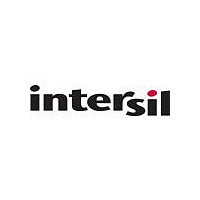hip0081 Intersil Corporation, hip0081 Datasheet - Page 9

hip0081
Manufacturer Part Number
hip0081
Description
Quad Inverting Power Drivers With Serial Diagnostic Interface
Manufacturer
Intersil Corporation
Datasheet
1.HIP0081.pdf
(14 pages)
Available stocks
Company
Part Number
Manufacturer
Quantity
Price
Company:
Part Number:
hip0081AS1
Manufacturer:
INTERSIL
Quantity:
5 510
Company:
Part Number:
hip0081AS1
Manufacturer:
HIT
Quantity:
5 510
Company:
Part Number:
hip0081ASI
Manufacturer:
INTERSIL
Quantity:
5 510
Company:
Part Number:
hip0081ASI
Manufacturer:
INTERSIL
Quantity:
5 510
Dissipation In Multiple Outputs
The HIP0080 and HIP0081 Power Drivers have multiple
MOS Output Drivers and require special consideration with
regard to maximum current and dissipation ratings. While
each output has a maximum current specification consistent
with the device structure, all such devices on the chip can
not be simultaneously rated to the same high level of peak
current. The total combined current and the dissipation on
the chip must be adjusted for maximum allowable ratings,
given simultaneous multiple output conditions.
For the HIP0081, the maximum positive output current rating
is 2.2A when one output is ON. When ALL outputs are ON,
the rating is reduced to 1.5A because the total maximum
current is limited to 6A. For any given application, all output
drivers on a chip may or may not have a different level of
loading. The discussion here is intended to provide relatively
simple methods to determine the maximum dissipation and
current ratings as a general solution and, as a special
solution, when all switched ON outputs have the same current
loading.
General Solution
A general equation for dissipation should specify that the
total power dissipation in a package is the sum of all
significant elements of dissipation on the chip. However, in
Power BiMOS Circuits very little dissipation is needed to
control the logic and predriver circuits on the chip. The
overall chip dissipation is primarily the sum of the I
dissipation losses in each channel where the current, I is the
output current and the resistance, R is the NMOS channel
resistance, r
dissipation, P
=
FIGURE 4. SINGLE PULSE ENERGY TEST SHOWING THE
10000
k
1000
=
n
100
1
P
0.1
k
HIP0080 SINGLE PULSE
ENERGY vs TIME
T
NOTE: SAFE OPERATING AREA
DS(ON)
AMB
D
FAILURE BOUNDARY FOR EACH HIP0080
OUTPUT STRESSED TO POINT OF FAILURE
for n output drivers is:
= 25
BELOW DOTTED LINE
of each output driver. As such, the total
o
1
C
PULSE WIDTH TIME (ms)
9
10
100
2
R
HIP0080, HIP0081
(EQ. 1)
1000
This expression sums the dissipation, P
driver without regard to uniformity of dissipation in each
MOS channel. The dissipation loss in an NMOS channel is
given in Equation 2 where the current, I, is determined by the
output load when the channel is turned ON. The channel
resistance, r
gate voltage and the chip temperature. Other switching
losses may include I
the chip and bond wires of the package.
The temperature rise in the package due to the dissipation is
the product of the dissipation, P
resistance,
determine the chip junction temperature, T
case (heat sink
solution is:
or:
Since this solution relates only to the package, further
consideration must be given to a practical heat sink. The
equation of linear heat flow assumes that the thermal
resistance from Junction-to-Ambient (
thermal resistance from Junction-to-Case and the thermal
resistance from Case (heat sink)-to-Ambient. The Junction-
to-Ambient thermal resistance,
paths from the chip junction to the ambient temperature (T
environment and can be expressed as:
P
T
T
JA
k
J
C
FIGURE 5. SINGLE PULSE ENERGY TEST SHOWING THE
10000
=
=
=
1000
=
100
I
T
T
2
C
J
JC
0.1
+
–
r
DS ON
P
P
+
HIP0081 SINGLE PULSE
ENERGY vs TIME
T
NOTE: SAFE OPERATING AREA
D
D
DS(ON)
AMB
JC
CA
FAILURE BOUNDARY FOR EACH HIP0081
OUTPUT STRESSED TO POINT OF FAILURE
of the package (Junction-to-Case). To
JC
JC
tab
= 25
BELOW DOTTED LINE
) temperature, T
is a function of the circuit design, level of
o
2
1
C
R lost in the interconnecting metal on
PULSE WIDTH TIME (ms)
D
10
JA
and the thermal
C
is the sum of all thermal
, the linear heat flow
JA
k
) is the sum of the
of each output
100
J
, given the
(EQ. 3A)
(EQ. 2)
(EQ. 3)
(EQ. 4)
1000
A
)












